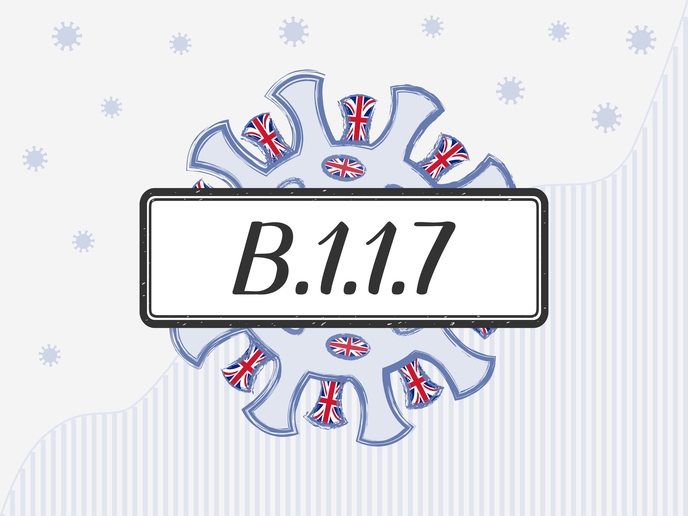British variant is 45 % more contagious, but there’s still hope
Since the COVID-19 pandemic’s emergence in 2019, scientists have identified several genetic variants of the SARS-CoV-2 virus causing the disease. One of the variants associated with higher infection rates is the B.1.1.7 variant first documented in the United Kingdom in September 2020 – or variant Alpha according to the World Health Organization’s new naming convention. But is B.1.1.7 really transmitted more easily, and to what extent does this apply outside the United Kingdom? Supported in part by the EU-funded DCUBATION project, researchers from Tel Aviv University (TAU) and the Electra-TAU laboratory studied the transmission dynamics of the B.1.1.7 variant in Israel. They found that it’s 45 % more transmissible than the country’s wild-type strain and became Israel’s dominant strain in just 3.5 weeks. Their research results were published in the journal ‘Cell Reports Medicine’. The Israeli government set up three national programmes to deal with the pandemic: wide-scale reverse transcription polymerase chain reaction (RT-PCR) testing, active surveillance in nursing homes, and prioritised vaccination with the Pfizer-BioNTech mRNA vaccine BNT162b2. The research team sought to assess how successful these programmes were in mitigating the risk of infection in the general population and the elderly. To estimate the programmes’ impacts, they analysed data from over 292 000 RT-PCR samples collected over a period of 2 months, from 6 December 2020 to 10 February 2021.
Vaccination prioritising the elderly
In this part of the study, the team grouped B.1.1.7 variant transmission into 3 age groups: 0–19, 20–59 and 60+. The results indicated that 2 weeks after half of Israel’s population over 60 years of age received their first vaccine shot, that age group experienced a striking decline in the incidence of infection with the particular variant. In other words, Israel’s prioritised vaccination of the elderly successfully prevented B.1.1.7-associated infections in this age group. “Until January we saw a linear dependence of almost 100% between the different age groups in new cases per 1,000 people,” states study co-author Dr Dan Yamin of TAU in an article posted on the ‘ScienceDaily’ website. “Two weeks after 50% of the 60+ population received the first dose of the vaccine this graph broke sharply and significantly. During January a dramatic drop was observed in the number of new cases in the 60+ group, alongside a continued rise in the rest of the population. Simply put, since more than 90% of those who died from Covid-19 were over 60, we can say that the vaccine saved hundreds of lives -- even in the short run.”
Routine monitoring in nursing homes
The researchers also demonstrated that active surveillance programmes in nursing homes markedly reduced B.1.1.7 transmission. They compared the viral load in residents of nursing homes with that in the 60+ general population and found a lower viral load in nursing homes. Overall, the data from the study supported by DCUBATION (Redefining the term ‘Incubation Period’ using large-scale digital data) shows that proactive monitoring combined with prioritised vaccination can reduce B.1.1.7 transmission and severe illness and death in the elderly. Dr Yamin concludes: “Due to crowded conditions, large households and age distribution in the Israeli population, the coronavirus had a more favorable environment for spreading in Israel compared to most Western countries.” His message is clear: If Israel can do it, so can the rest of the world. For more information, please see: DCUBATION project
Keywords
DCUBATION, COVID-19, SARS-CoV-2, virus, variant Alpha, B.1.1.7, vaccine, transmission



